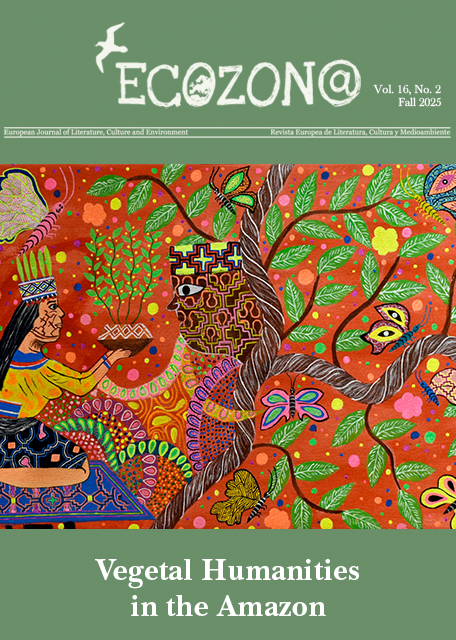Der Mensch im Katastrophenuniversum. Zum Verhältnis von Historie, Naturgeschichte und Poetik im Frühwerk Arno Schmidts
DOI:
https://doi.org/10.37536/ECOZONA.2012.3.1.451Schlagworte:
Schmidt, Arno, 1914-1979, poetics of desaster, cultural ecologyAbstract
Among the representations of nature in Arno Schmidt's early texts from the debut novel Leviathan towards his radio features, scenes of diverse loci terribili and destructive forces of nature take a prominent place. In several texts, natural processes and disasters are described as trigger or executor of the apocalypse. Analogous to the duality of the term 'natural catastrophe' - with reference to the extreme natural event itself and to the assessment of its impact on culture and civilization -, Schmidt linked in these literary images scientific data with mythological and other cultural patterns of interpretation. Starting from the concept of nature as Leviathan, Schmidt's view of nature can be traced, where the natural disasters are to be understood not as contingent accidents, but even as the defining moments of nature and natural history. These are by Schmidt closely interwoven not only with culture and human history, but become also a direct expression in his poetological programme. This article focuses on the connections between these three components in the context of German coming to terms the past and the discourse of cultural ecology (especially A. Goodbody, H. Zapf).
Downloads
Downloads
Zusätzliche Dateien
Veröffentlicht
Ausgabe
Rubrik
Lizenz
Authors who publish with this journal agree to the following terms:
a) Authors retain copyright and grant the journal right of first publication with the work simultaneously licensed under a Creative Commons Attribution License that allows others to share the work with an acknowledgement of the work's authorship and initial publication in this journal (CC BY-NC for articles and CC BY-NC-ND for creative work, unless author requests otherwise.
b) Authors are able to enter into separate, additional contractual arrangements for the non-exclusive distribution of the journal's published version of the work (e.g., post it to an institutional repository or publish it in a book), with an acknowledgement of its initial publication in this journal.
c) Authors are permitted and encouraged to post their work online (e.g., in institutional repositories or on their website) prior to and during the submission process, as it can lead to productive exchanges, as well as earlier and greater citation of published work (See The Effect of Open Access).










